Diplomacy / Jerusalem
Double vision
As the US breaks with the status quo by moving its embassy from Tel Aviv – and a spate of nations declare that they’re willing to follow suit – we assess Jerusalem’s potential as a diplomatic city.
With fanfare and fireworks, the new US embassy opened in Jerusalem last May. The US diplomatic mission’s move from Tel Aviv was castigated by Palestinian leaders, and European and Middle Eastern allies, as irresponsible, dangerous and even catastrophic; deadly confrontations between Israel and Palestinian demonstrators in Gaza underlined these warnings. But Israeli and US leaders speaking from the podium promised a new “realistic” beginning for the Israeli-Palestinian peace process and foretold that a diplomatic tsunami was about to hit Jerusalem. Prime minister Benjamin Netanyahu said he expected other countries would soon move their embassies, following the US’s lead.
So far only Guatemala and Paraguay have actually made the move, and Paraguay reversed that decision less than four months later. However, Australia, Romania and the Czech Republic have all said that they may follow suit, while Brazil’s new president Jair Bolsonaro has reiterated his plans to move his nation’s embassy. With the US set to expand its embassy staff by the summer, according to a State Department official, could all this activity transform Jerusalem into a proper diplomatic city?
While Washington says that “recognition of Jerusalem as the capital of Israel is simply a recognition of reality”, for most of the international community, Trump’s decision has undermined the principle that the competing Israeli and Palestinian claims on the city can only be decided through a negotiated settlement. “It was one of the most undiplomatic decisions you can think of,” says a European diplomat, candidly, about Trump’s move. “It threw the diplomatic consensus – that Jerusalem is a final-status issue – under the bus. We will all be happy to recognise West Jerusalem as the capital of Israel when we can recognise east Jerusalem as the capital of the Palestinian state.”
Daniel Seidemann, a much sought-after legal expert and adviser on Israeli-Palestinian relations in the city, concurs. “America’s move of the embassy has not, in any significant way, impacted the recognition of Jerusalem as the capital of Israel. I think that we will pretty much see a continuation of what we’ve seen until now.” That is, he adds, the paradoxical and uniquely Jerusalemite situation of an extremely international city that is not cosmopolitan at all.
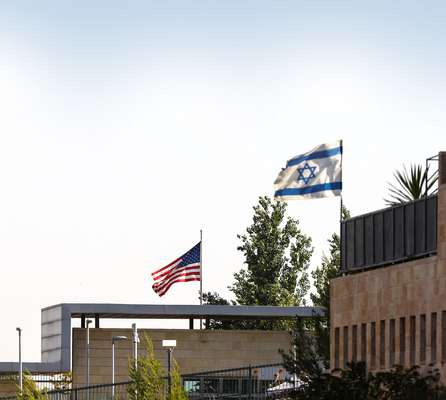
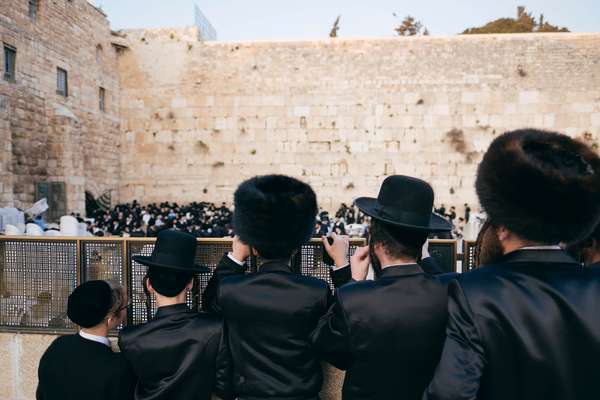
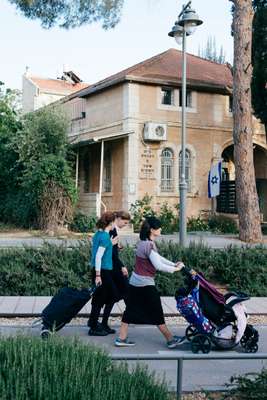
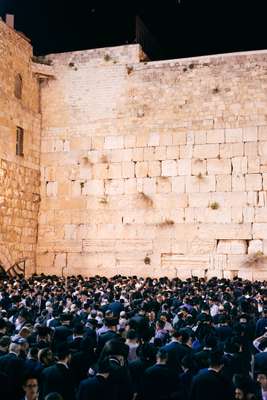
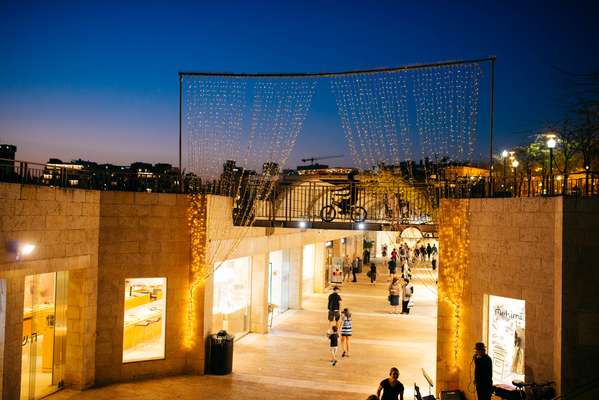
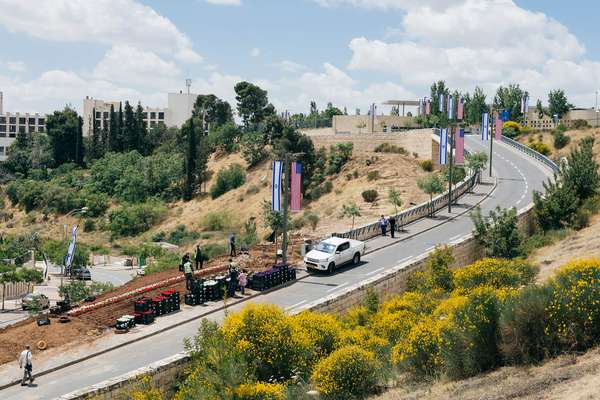
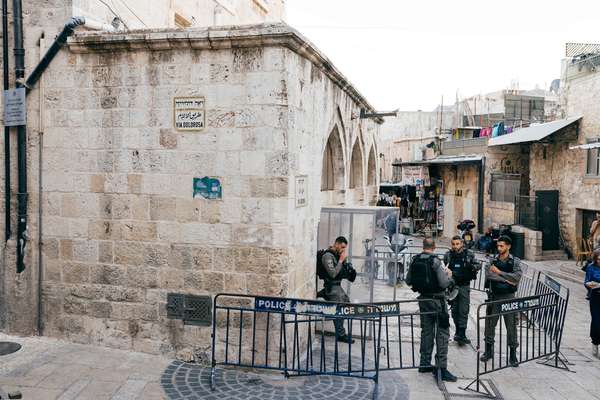
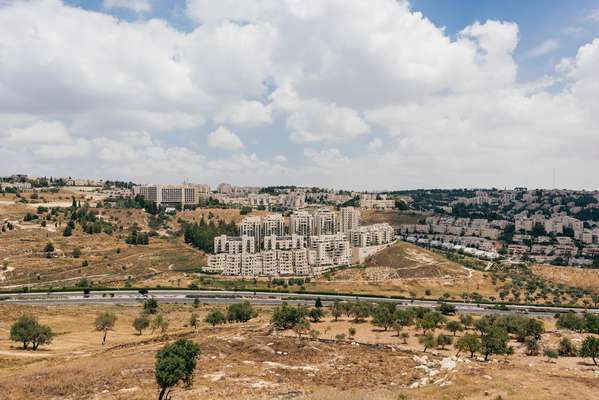
Jerusalem is the poorest city in Israel; the business and cultural hub has long been Tel Aviv. Many Israelis in West Jerusalem look to – and often eventually relocate to – Tel Aviv for work and culture, in the same way that Palestinians in East Jerusalem, who are Israeli residents but not citizens, look to Ramallah and Bethlehem. “Jerusalem is probably three cities, at least,” says Seidemann. “A modern Israeli city, a Palestinian city and an ultra-orthodox city. And the interface between these three is not exactly seamless.”
Perched on top of this urban landscape, however, is a “micro-diplomatic” city. Several European states, Turkey, the UN and a host of international NGOs have missions based in Jerusalem, though they’re here to serve the Palestinian people and as representatives to the Palestinian Authority. In addition, many of the diplomats accredited to the Palestinian Authority actually live in Jerusalem and commute to offices in Ramallah, crossing the separation wall that divides Jerusalem from the West Bank (which is mostly impenetrable to Palestinians).
“There is a sizeable diplomatic community,” says the European diplomat, “so in that sense we’re a big part of the city.” However, diplomats maintain their distance from most Jerusalemites. “People tended to frequent fellow internationals, not the locals,” he adds.
Even under a comprehensive peace agreement, Seidemann is not convinced that an influx of diplomats would change Jerusalem’s essential character. “What would happen if all of a sudden you had 70 embassies in Jerusalem instead of 20 representative offices? Difficult to say. But ultra-orthodox Jews will still make up 23 per cent of the population and the Palestinians will still be 40 per cent.” Though many diplomatic cities are bubbles, Jerusalem is a city of many bubbles. “That’s not going to change.”
If diplomacy circles might as well be on another planet for most Israelis in Jerusalem, for some Palestinians the various consuls and representatives are a more immediate presence. “We are in contact with diplomats all the time,” says Sami Abu Dayyeh, the Palestinian CEO of travel agency Netours, and owner of Jerusalem’s Ambassador Hotel. On any given day, lunch or dinner at the Ambassador – or the nearby American Colony Hotel, both hubs of East Jerusalem’s diplomatic activity – can turn into a game of spot the diplomat.
Yet even Abu Dayyeh believes that diplomacy isn’t well practised in the city. “Diplomats are adapting to the realities that Israel imposes [on the Palestinians],” he says. “If they stood by international law and told their friends on the Israeli side what is right and wrong, it would have been a different ball game. But they don’t have the guts to deal with Israel.”
But whether or not more ambassadors appear, Jerusalem is already on a trajectory for change. A just-opened high-speed rail line links Jerusalem with Ben Gurion Airport and Israel’s extensive railway network, making travel significantly easier; meanwhile the central Machane Yehuda market is seeing new, hip bars open. Like everything else here though, as author Adina Hoffman points out, this development is not distributed equally; even as the municipality lavishes money on Jewish West Jerusalem, it barely collects the rubbish in Palestinian neighbourhoods.
And yet, says Hoffman, Jerusalem shows certain subtle signs of becoming a city like any other. The light-rail system crosses the city, connecting East to West, thereby blurring the Green Line separating the would-be Palestinian capital from sovereign Israel. This, says Hoffman, has troubling political implications. Nevertheless, “what’s interesting on the light rail is that everybody’s there. They’re not interacting but you see Palestinians, you see haredim, you see secular Jews and you see tourists,” she adds.
This obviously isn’t peace but it is a kind of fragile coexistence. “They’re leaving each other alone, in the way you’re supposed to do in a big city,” says Hoffman. It might not indicate much with regards to the city’s potential as Israel’s diplomatic capital but it’s a cautiously positive sign for Jerusalem’s future.


